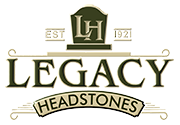Cemeteries are places where bodies of the deceased can be buried and cremated remains of the deceased can be stored or scattered. These places provide a significant sense of finality for the family members and friends who may be grieving a loss. However, not all cemeteries are created equal. There are several differences between public and private cemeteries, as well as laws that govern them. Today, we examine the laws and regulations pertaining to privately owned cemeteries. Keep reading our article to learn more.
What Are Privately Owned Cemeteries?
Privately owned cemeteries generally have no religious or military affiliations. Whilst public cemeteries are owned and operated by a city, state, or country, private cemeteries are traditionally owned by a family or a business that provides services based on need. Private cemeteries can be found in populated areas or rural locations, where generations of families have remained for decades or centuries. Public use, rather than ownership, determines whether a cemetery is public. Even privately-owned cemeteries may be deemed public if they are open to the use of public burials.
Public vs. Privately Owned Cemeteries
There are several advantages to choosing a private cemetery for your own funeral arrangements or those of a loved one. Today, many public cemeteries are overcrowded. Unless you invest in a burial or companion plot in advance, it may be difficult to find accommodations near your spouse, parents, or ancestors. Furthermore, many people choose private cemeteries, because they do not wish to be buried on church or religiously affiliated grounds.
Private cemeteries are also esteemed for their various maintenance services. Some cemeteries provide flower and gravestone maintenance, which can take some of the burdens away from the family of the deceased. You can also use a private cemetery for the purpose of interning cremated remains. Some privately owned cemeteries provide a columbarium to store urns or memorial gardens for the purpose of scattering ashes.
However, the cost of choosing a privately-owned cemetery may be too substantial to entertain. Maintenance services and the absence of religious or military affiliation come at a higher cost than most public cemeteries, but all those costs may be covered by a life insurance policy or funeral fund. Furthermore, there are laws and regulations to ensure that any burial grounds remain and the removal of human remains is strictly limited or inhibited.
If you have any questions about privately owned cemeteries or would like to learn more about our headstones and services, please contact Legacy Headstones today to speak with an experienced customer service representative.
